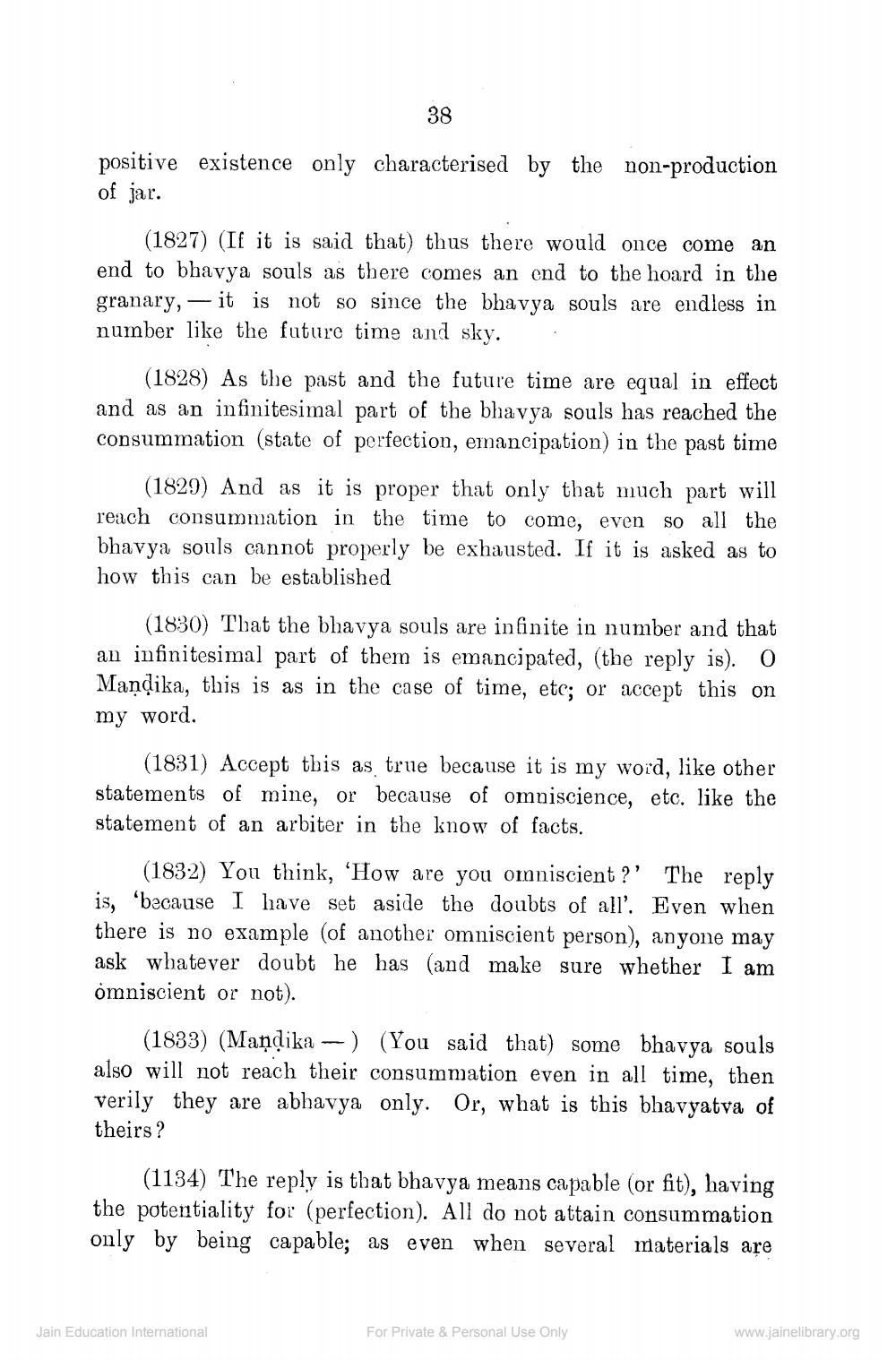________________
38
positive existence only characterised by the non-production of jar.
(1827) (If it is said that) thus there would once come an end to bhavya souls as there comes an end to the hoard in the granary, - it is not so since the bhavya souls are endless in number like the future time and sky. .
(1828) As the past and the future time are equal in effect and as an infinitesimal part of the bhavya souls has reached the consummation (state of perfection, emancipation) in the past time
(1829) And as it is proper that only that much part will reach consummation in the time to come, even so all the bhavya souls cannot properly be exhausted. If it is asked as to how this can be established
(1830) That the bhavya souls are infinite in number and that an infinitesimal part of them is emancipated, (the reply is). O Mandika, this is as in the case of time, etc; or accept this on my word.
(1831) Accept this as true because it is my word, like other statements of mine, or because of omniscience, etc. like the statement of an arbiter in the know of facts.
(1832) You think, 'How are you omniscient?' The reply is, because I have set aside the doubts of all. Even when there is no example (of another omniscient person), anyone may ask whatever doubt he has (and make sure whether I am omniscient or not).
(1833) (Mandika –) (You said that) some bhavya souls also will not reach their consummation even in all time, then verily they are abhavya only. Or, what is this bhavyatva of theirs ?
(1134) The reply is that bhavya means capable (or fit), having the potentiality for (perfection). All do not attain consummation only by being capable; as even when several materials are
Jain Education International
For Private & Personal Use Only
www.jainelibrary.org




